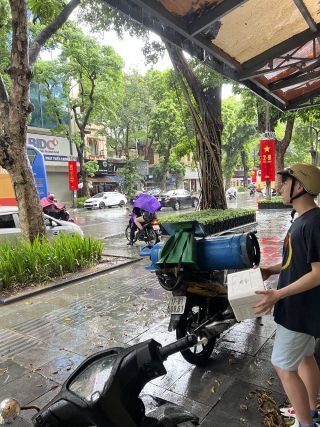Creativity
Reminding Myself to Trust the Creative Process
When you're in a rut, take your own advice.
Posted August 25, 2023 Reviewed by Ray Parker
Key points
- Sometimes all it takes is finding your way to something you already know in creativity.
- I told executives to "trust the process;" I needed to take my own advice.
- If you're a concrete thinker, use it.

Trust the process.
I’ve taught in an executive master of business program for a decade. These participants are older (average age 42) with decades of management experience. They’re smart and they know it.
Executive MBA Program: A Challenge to the System
Usually, we do a great job of setting expectations for the culture right off the bat—during a week-long residency of participants and faculty members only. We explain the program, the way things work, and the likely obstacles they’ll face. Usually, they buy in.
Sometimes, though, a cohort challenges the system. One year, seven out of 18 participants had military backgrounds—either currently in the military or recently retired and looking for new careers.
It seemed that every month, someone had a “suggestion” about how to change the program: “I think you should put this finance segment in the first month, not in the third.” “Why are we doing this reading? This presentation? It doesn’t add to what we’re learning?”
Repeatedly, faculty members said, “Trust the process. You’ll eventually see why it works.”
The challengers remained skeptical throughout the first semester. “I don’t think you should teach that session in that way. Too many spreadsheets, not enough discussion.” Or, “You need to include more power points, more data, more handouts, so we don’t have to take notes. How do you take notes on a discussion anyway?”
Sigh.
But when March of the first year came along, one day in class a naval officer said, “You know, the dots are connecting. I see now why we did that in November, why you brought in this reading, and how the assignment supports our learning of that concept. Ah. Trust the process. I get it now.” He winked.
So I applied that logic to myself this week after beating my head against the wall for days.
A Fiction Writer's Struggle
I’m a “fiction-writer-in-training” these days. After 30-some years of writing scintillating academic prose (don’t believe it) and creative non-fiction essays and books, I’ve turned to real fiction, where I have to make things up. During those academic years, I wrote about something concrete (e.g., how employees adapt to corporate acquisitions, whether expatriate American women can succeed in overseas assignments, or how organizational creativity works).
But now, I’m stumped. Without concrete ideas, I’m flailing. I’m not as imaginative as I’d hoped and can’t seem to come up with twists and turns for my plots. I worry that I’ll write a page “wilter,” rather than a page-turner.
So I went back to that wisdom I try to pass on to executives and tried to coach myself: I took an hour to think through what was going on and realized I do have something concrete to draw on and write from: loads of notes and interviews and photos about the topic of my novel (art forgeries, Vietnam), as well as my experience in Hanoi.
Trust the Process

Sure enough, that allowed me to open up my process, to find a pathway. I needed the visuals and notes to stimulate memories of places, sounds, smells, and the air on my skin. The afternoon of strolling through Hanoi's Fine Arts Museum was filled with art pieces that focused on war. The galleries I visited, the artists I talked to. The night I passed the Hanoi Hilton prison.
And the day that I got caught in a monsoon downpour.
It reminded me that I have something to write from, not just about.
And as I move forward, I’ll find a new process to trust. Now, back to work.


